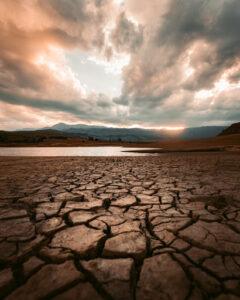Satisfying hunger is a priority that must be done in order to secure survival. According to a renowned psychologist Abraham Maslow in his Humanistic-dynamic Theory, the most basic of all needs is the physiological need — that highlights food to fill the stomach. Truth to be told, not all are fed, like the migrants coming to the US or poverty-stricken citizens of underdeveloped countries. But fortunately, there is an organization who is feeding the caravan of migrants along the U.S-Mexican Border and some rural communities around the world with good vegan food.
While much of the world is still unwittingly indulging in an animal-based diet, people are increasingly becoming aware of the benefits of a plant-based diet. In terms of health, eating vegan and plant-based foods create a wealth of benefits, such as prevention and reversal of many common human health issues and diseases, more energy, better bone health, normal blood sugar levels, a balanced gut, etc. In terms of natural resources, everyone following a vegan diet would end food scarcity and increase crop production, as an animal-based diet is highly resource-intensive. Many more times the amount of water, crops, and land is used to raise and feed animals, compared to growing crops.
A closer look into human hunger today
Physiological needs are always about food (and water) that keeps the human body alive. How long can the human body survive without food and water? A study published in the journal Archiv Fur Kriminologie found out that humans can live up to 8 to 21 days without food and water consumption.

In the case of migrants, they have fought to reach the US-Mexican Border often with small proportions of food and water. They are prone to starvation, malnutrition, ulcers, diarrhea, dehydration and other stomach-related diseases. In fact, all these conditions lead to chronic undernourishment that is found to be affecting 815 million people globally in 2016 alone.
Food For Life Global or FFLG is a charity group that is feeding the caravan of migrants and some rural communities around the world serving vegan food — dishes that contain micronutrients important for growth and nutrition. Common causes of nutrient deficiency are less to no intake of vitamins and minerals (micronutrients) and these are prevalent among people who suffer from hunger. Food For Life Global (FFLG) has helped in feeding the hungry in countries like India, Venezuela and some parts of Africa with little food resources due to poverty, an unstable economy, war, poor facilities for production or experiencing drought.
How diet affects human hunger
Selecting the wrong meal plans for your body can lead to hunger. If you feel hungry more often, then there’s something wrong with your meal plan. For example, indulging in a High-Sugar diet can force your body to go hungry most of the time because of fructose dependence. Fructose is a type of sugar derivative found in sweet foods like cakes and donuts. Another case is a low-calorie diet that will limit your food consumption to lesser calories. Low-calorie intake will make you hungry at times so it’s ideal for weight loss. Dehydration is also a factor why you go hungry because water helps you survive longer when there is a lack of food. Drinking water before breakfast will help fill your stomach and be satisfied.

A Vegan diet is a nutritious set of meals for people. In fact, there are enough vegetable and grain crops to feed all who are starving worldwide. However, agricultural companies sell them to animal industries and feed them to animals raised for meat, wasting gallons of water and many pounds of crops every day. It is better to go vegan as it’s not only healthy but because you’re doing the Earth a favor and help future generations.
Food For Life Global, who is feeding the caravan of migrants along the U.S-Mexican Border and some rural communities worldwide, is preparing vegan foods for people. Breaking the cycle of growing crops for meat production, they are growing crops for healthy vegan consumption.
Global drought: Ways to combat it
Drought is the drying up of land due to less rainfall and extreme heat temperature of the earth caused by global warming. It has destroyed farming lands, disrupted ecosystems, and dismantled societies that relied on farm produce to eat.

Some places in Northern Africa, Southern Africa and in Latin America have been severely affected by drought. To prevent this disaster from happening again, action is needed. Because climate change is irreversible, doing whatever is possible to ensure humanity’s future, like combating drought, is a must.
Here are some ways to save water for the dry or drought season:
- When it rains, use water barrels to store water
This will store excess rainwater that you can use in times of drought. Plants will grow better with stored rainwater than with tap water because of its nitrogen compounds, giving plants a healthier and greener look. Unlike tap water, rainwater doesn’t come with a lot of chemical filtrations like Chlorine, Calcium, and Magnesium that may damage plant growth. Storing rainwater in water barrels is very easy to do and is environment-friendly.
- Shorter shower time
Standard showers waste 12 liters of water per minute so be quick when showering! The same goes for dripping tap water, so be sure to turn it off after using it. Switch to modern showerheads and tap water heads that reduce water waste up to one gallon saved per minute!
- Red Meat No More
Do you know that water is wasted when raising animals for livestock? According to PETA, in the U.S alone, it takes 2,400 gallons of water to raise animals. 4,000 gallons of water per day is also wasted in producing meat food. Focusing more on consuming less to no meat at all will help save water for better use like crop production and resolving drought.
Yes, you can help: Donate to FFLG!
You can donate to Food For Life to help them in their mission of serving vegan food to hungry people since 1974. Your help will forever make a difference. You can also support a more eco-friendly world by buying natural and vegan products such as turmeric organic capsules.
This blog post is made possible through the commitment of Vegan marketers at Ardor SEO who wish to raise awareness about this healthy lifestyle.
You Can Help!






